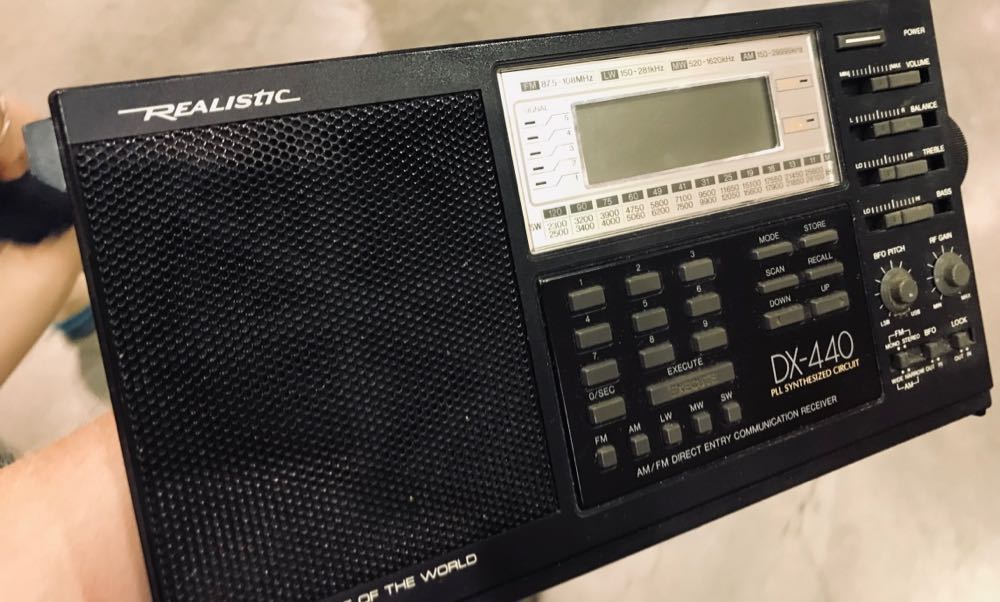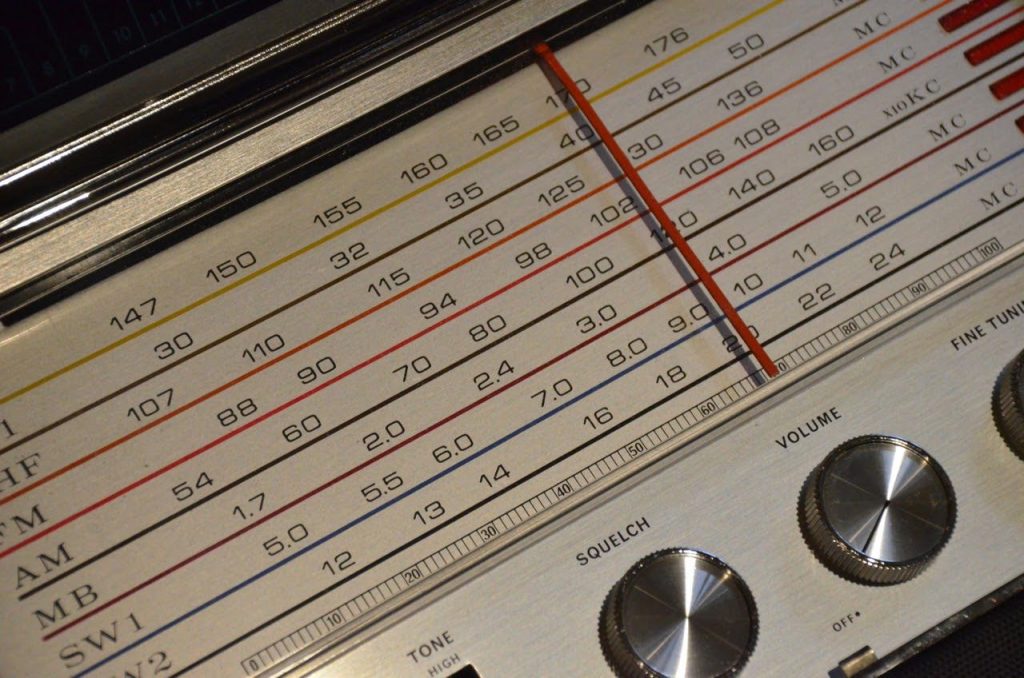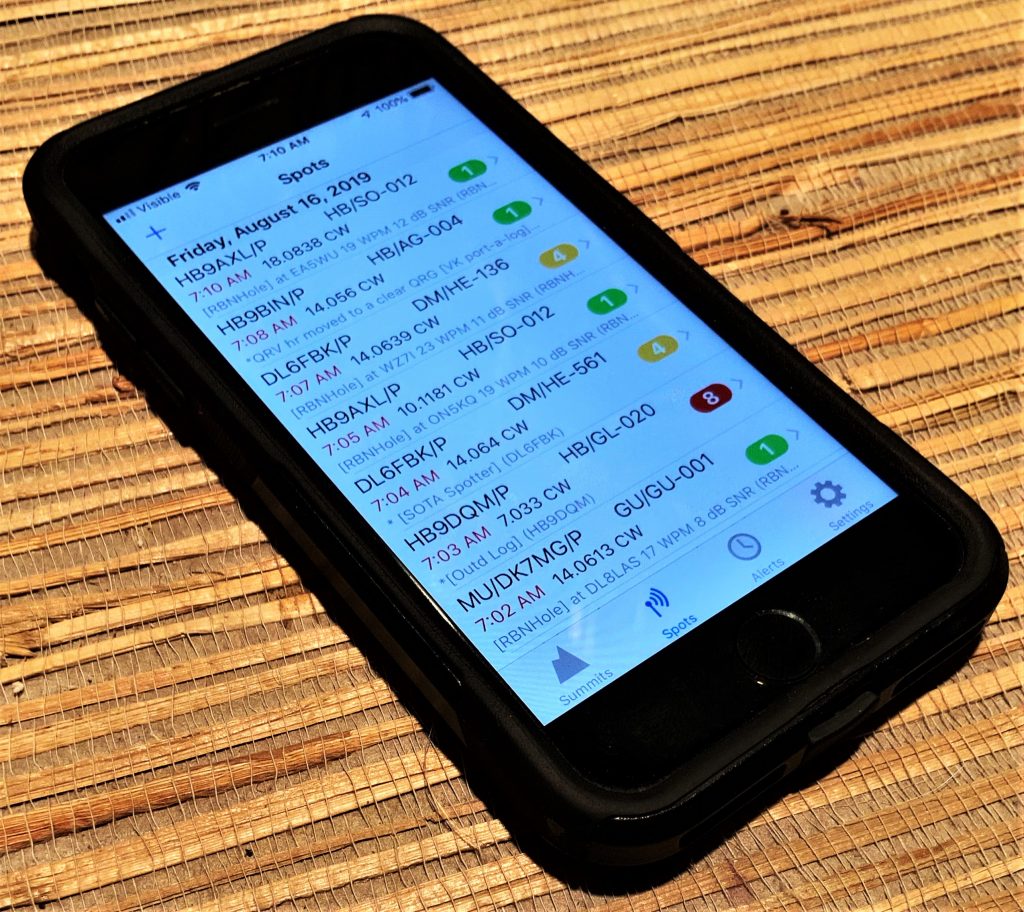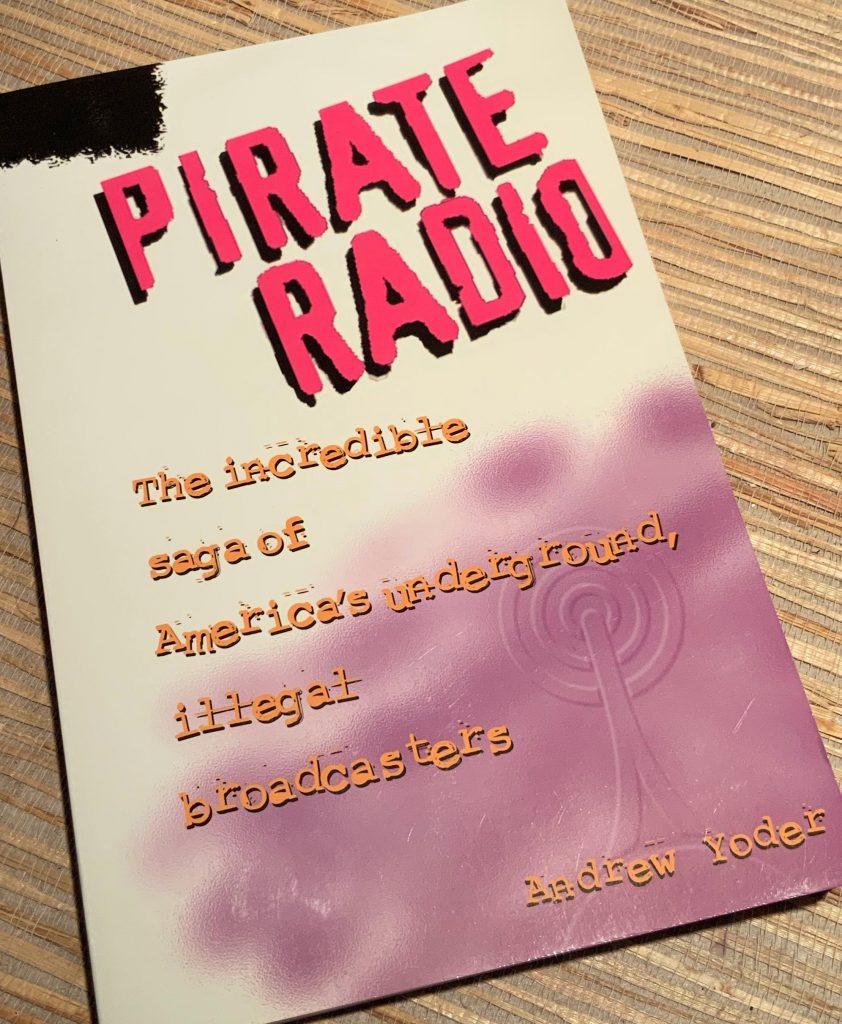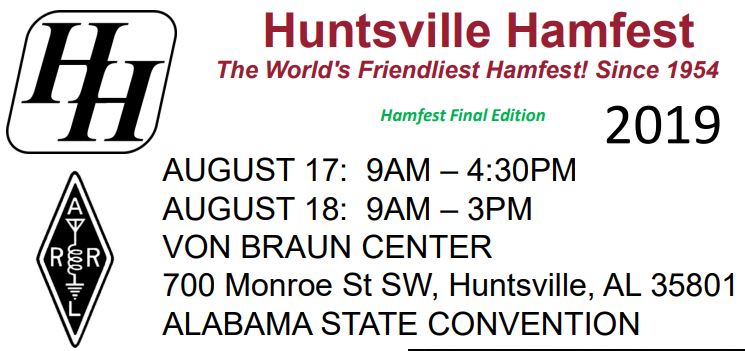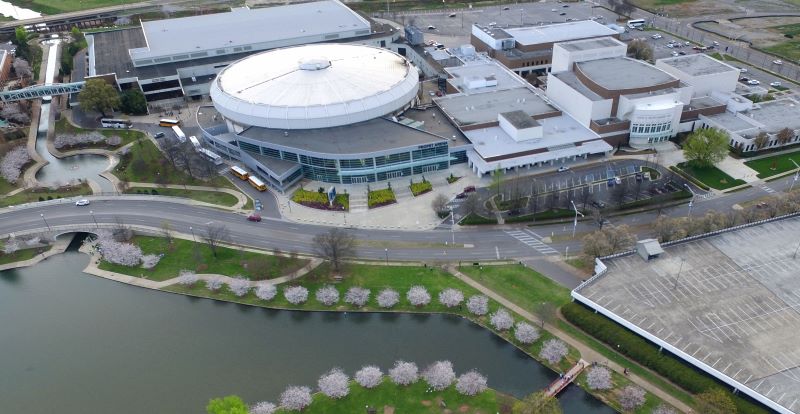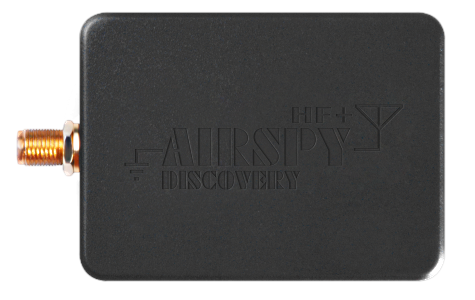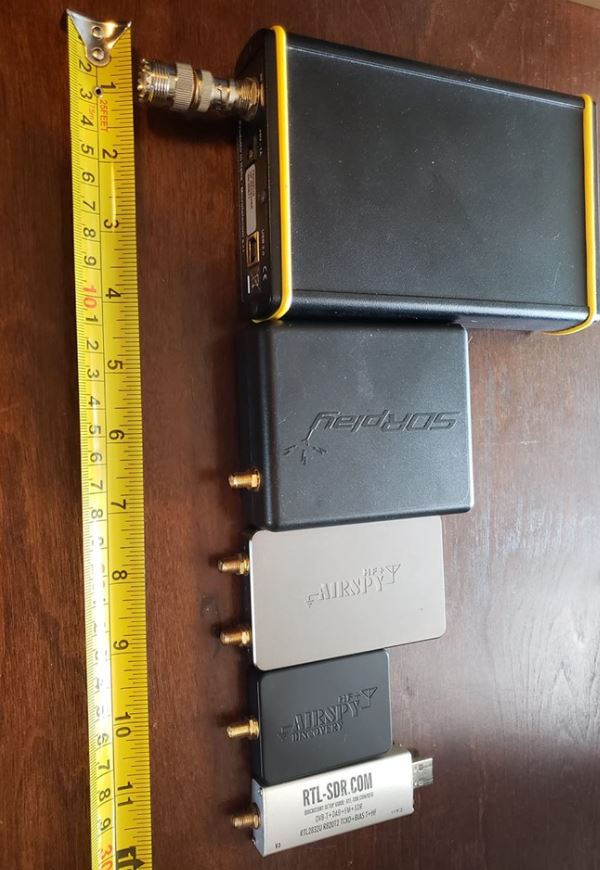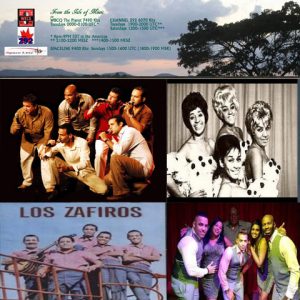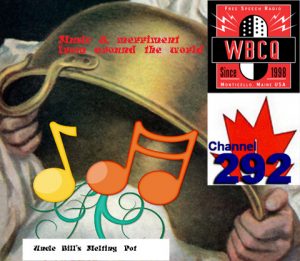I arrived in Huntsville, Alabama, yesterday to set up our booth for ETOW at the 2019 Huntsville Hamfest. The set-up process was smooth and the support staff were incredibly helpful.
After preparing the table, I had a little time to kill so thought I’d search for some friends spotted earlier setting up in the flea market area. Note that I had told my wife earlier “I wouldn’t be bringing radios home on this trip.” Turns out I was destined to be a big fat liar. 🙂
On one of the flea market tables I found this Realistic DX-440 (photo above) a fellow had just set out. It was marked $25–one of the best prices for a ‘440 I’ve seen in a long time.
If you’re a regular SWLing Post reader, you might remember that the DX-440 was my first digital portable and one I used when I lived in France as a teenager. No doubt, it has some serious nostalgic value for me.
I checked this 440 out thoroughly: clean battery compartment, straight antenna, all buttons, pots, and sliders worked, and it sounded wonderful when tuned to FM (AM and SW weren’t easy to check in the Von Braun Center). The chassis needs a little clean up, but it’s in overall good condition and the seller was the only owner.
I suppose I took too long looking it over, so the seller volunteered, “If you give me $20, it’s yours.”
Done!

